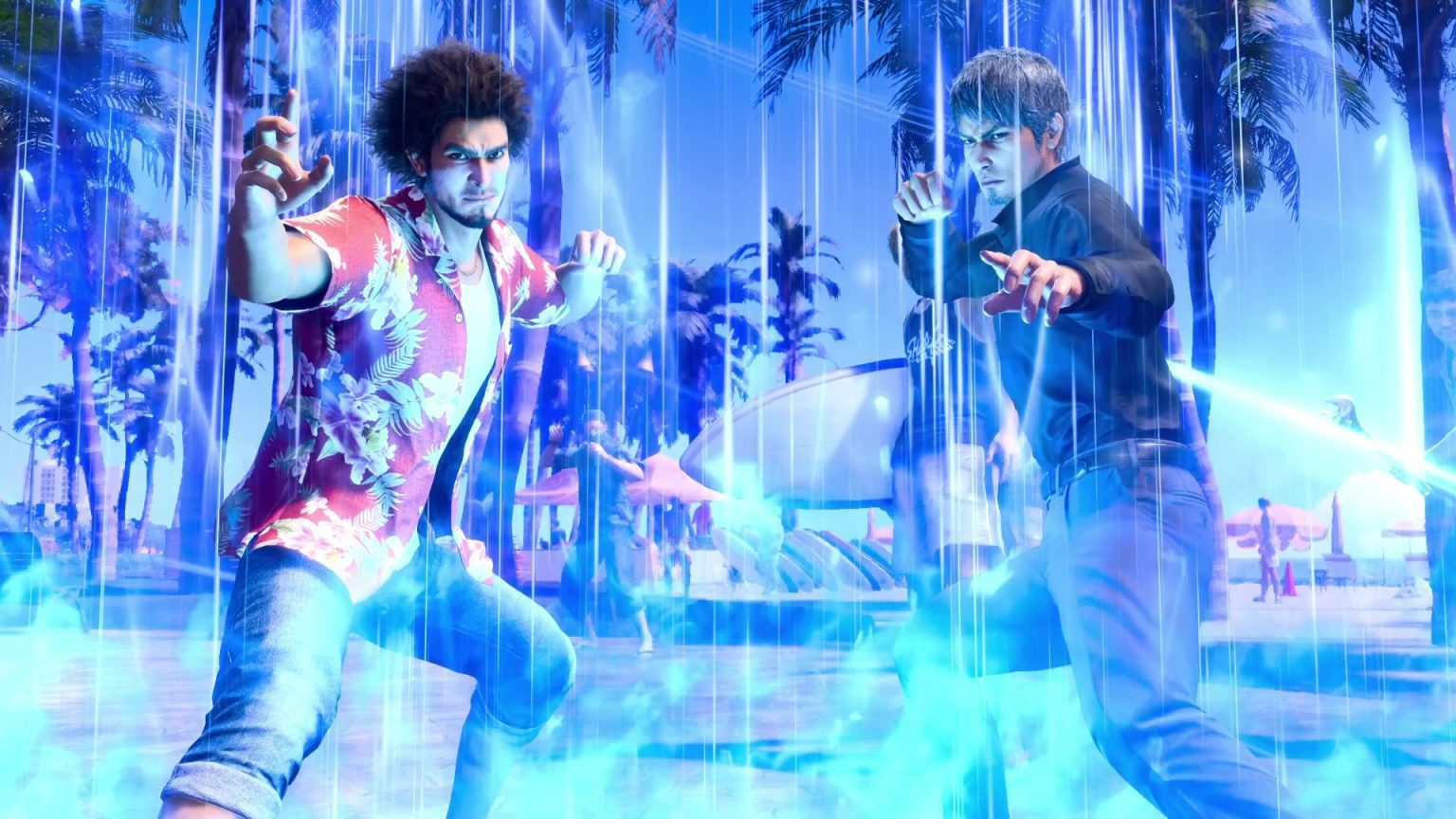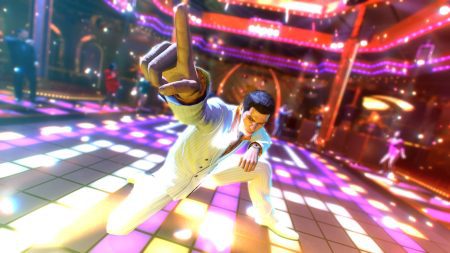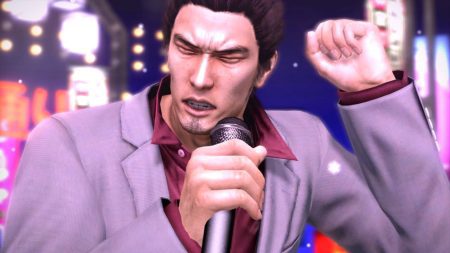Only One Life
The Like a Dragon (akaYakuza) series is all about living life to the fullest and relishing the present. Protagonists Kazuma Kiryu and Ichiban Kasuga faced harsh realities early in life and chose to take the low road to protect the ones closest to them. I have played the Like a Dragon games for years, and the main characters often reminded me of myself, flaws included.
It’s often difficult to put myself in situations outside my control. I expect answers to come to fruition, even when it means ignoring what’s right in front of me. Rather than address the problem, I start to embody stoicism. The period of inactivity may hinder my potential to become the best version of myself and make a difference in the world.
Whenever I’m faced with uncertainty, I think about the protagonists of the Like a Dragon series—a pair of “tough guys” who do not reinforce their caricatures but rather revolutionize them.
Dragon’s Ascent
In the Like a Dragon games, the ideal Yakuza exists to protect people that society can’t be bothered to acknowledge. Yet, this system paves a path for greed and a lust for power. Kiryu (star of the first several Yakuza games) and Ichiban (star of the two recent Like a Dragon games) are special in this case, as they are earnest in their Yakuza values and willing to go to extremes to see that ideology fulfilled.
Kiryu and Ichiban share an unwavering sincerity in their motives and loyalty toward their loved ones. Kiryu is committed to helping orphans because of his own similar upbringing, while Ichiban’s obsession with finding a community stems from abandonment. Their story moments culminate in a desire to replace the past with something new—and better—that they can leave behind.
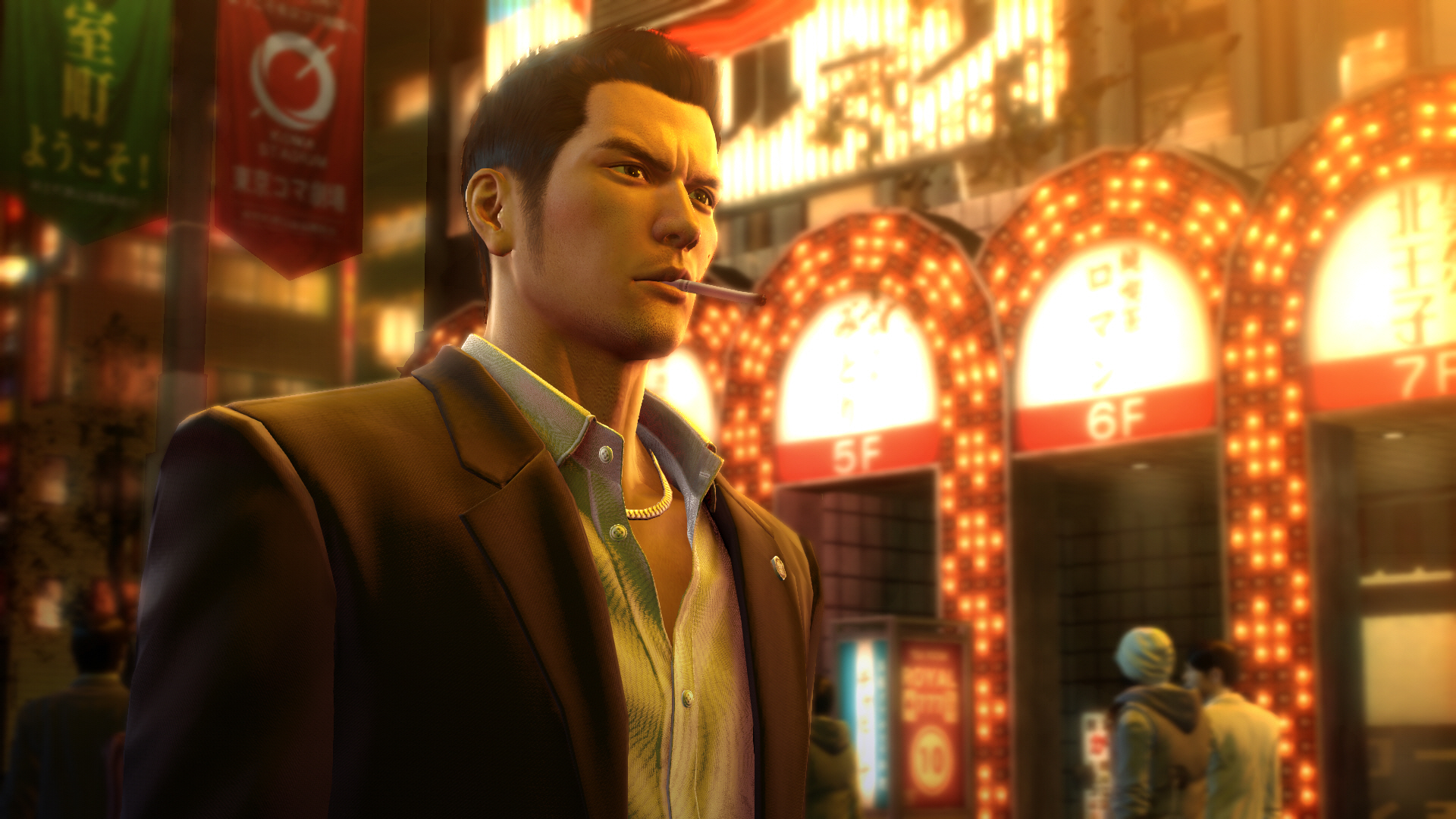
Early in his career, Kiryu had high expectations thrust upon him from the Tojo Clan when he acquired the title of “Dragon of Dojima.” He could not rest while he was a living target. (This would, one day, lead him to be “The Man Who Erased His Name.”) To be the bastion of a crime organization is no easy task, and that responsibility created a parallel between his sweet nature and callous brutality. This is even symbolized in his attire: A gray suit represents his protective and stoic nature, while his red shirt symbolizes strength and passion.
Kiryu becomes embroiled in a cycle of violence, ultimately leading to a spiral of regrets when his enemies begin to go for the people closest to him. His parents were killed by Shintaro Kazama, his adoptive father, because he saw them as nothing more than statistics to the underground world. Shintaro Kazama raises Kiryu to adopt that lifestyle. Eventually, Kiryu solemnly rejects his path and vows to stop Kuze, the head of the Dojima Family, who views meaningless kills and senseless violence as a data chart. When he realizes his actions have added to this turmoil, Kiryu commits to champion what the Yakuza should aspire to be: selfless in the face of adversity.
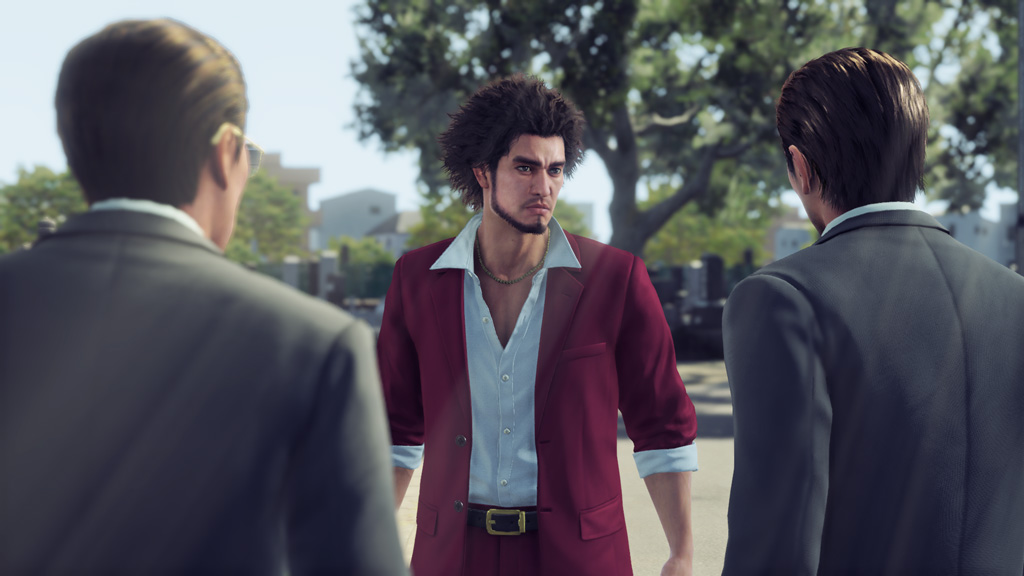
On the other hand, Ichiban had to climb up the social ladder to find a lifestyle that would give him his footing in the world. Players can empathize with his emotions and trials because they, too, have in some form lived that life and still struggle to find themselves as they age.
After being born into poverty, Ichiban took the fall for the Arakawa family and was sent to prison for much of his young adult life. He lost out on key experiences that could have helped him as he entered his prime adult years. His tenacious energy is an act of rebellion against a society that looks down on people who share similar circumstances.
Not Just a Blank Canvas
While both Kiryu and Ichiban are violent criminals, the quirks of their characterization are what make them appealing protagonists. The side stories in the series sell the hilarity and absurdity of their careers, as both characters routinely, albeit reluctantly, help the weirdos out in Kamurocho and Yokohama. For example, in Yakuza Kiwami 2, there’s a side quest that has Kiryu attend a club with a high-ranking mafia boss who secretly likes to roleplay as a baby. Ichiban has had similar stories, such as capturing an escaped circus chimp that has taken control of an excavator.
The series balances its crime drama with the ridiculousness that can only be expected from a video game, expanding player’s understanding of the protagonist and the dynamics of their world. Ichiban’s outgoing nature keeps him from falling into his repressed emotions. Kiryu’s strictness is a shield that reflects his unwavering sense of honor and justice. These two are always willing to listen to others’ concerns even if their foes directly oppose their ideals.
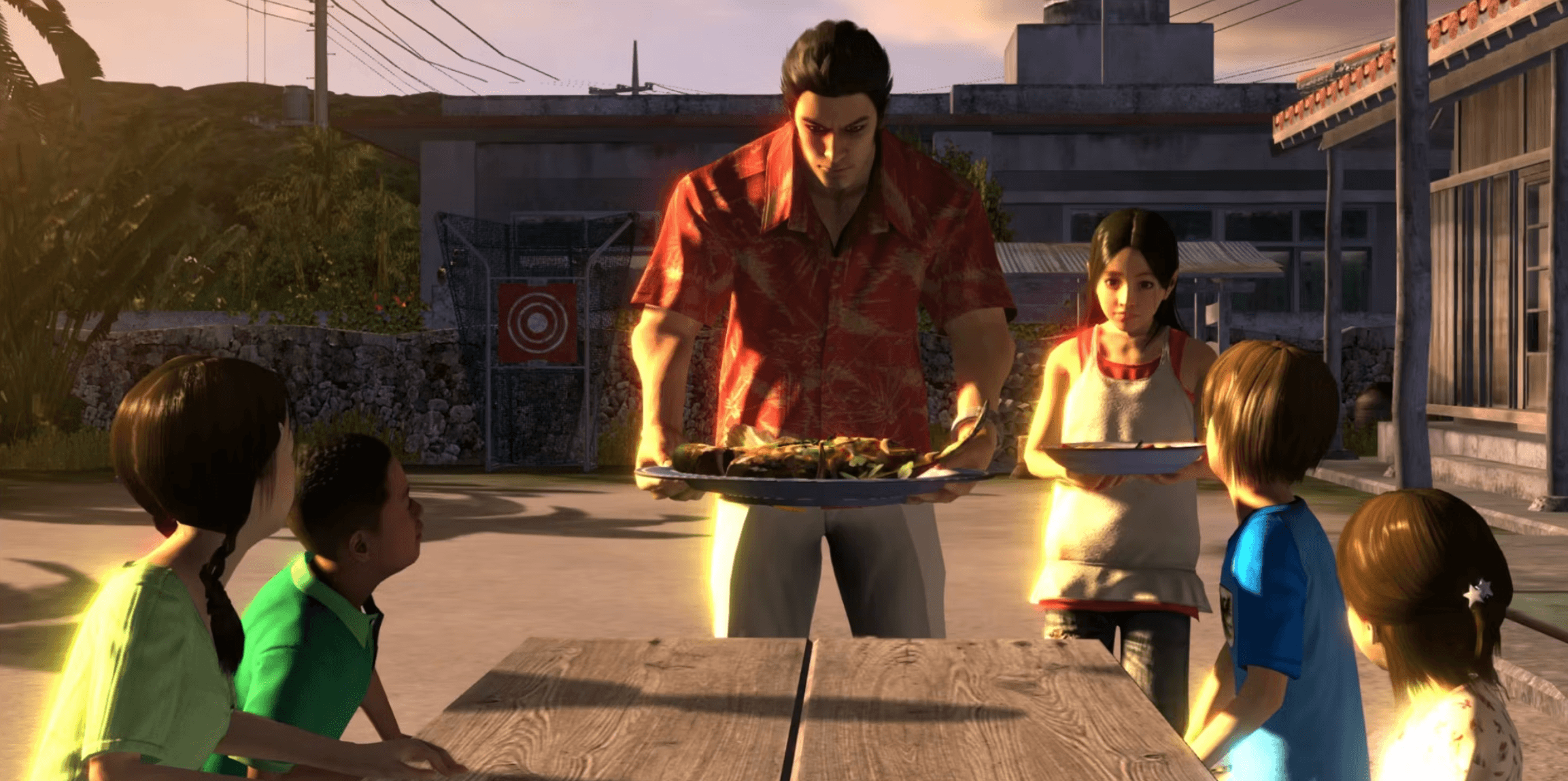
Their ups and downs make them more realistic. Kiryu was raised in the Morning Glory Orphanage, and Yakuza 3 opens with him having taken ownership of it. (It’s a great prologue.) Kiryu does this both to distance himself from the Yakuza life and to help the orphans. Greedy landowners are keen on tearing it down, and Kiryu does all he can to protect the orphanage. When he has to leave to return to Yakuza business, his idealistic mindset takes a nosedive. The orphanage, and Kiryu’s relationship with its children, is a constant thread throughout the Yakuza series.
Kiryu is a dreamer. He hopes that everyone can achieve the life they want to live, and these ideals manifest in a behavior where he spares no contempt for those who walk on others. This dichotomy of an overbearing protector and justice fighter influences his relationships and his overall demeanor when confronted with difficult decisions. For example, after exposing the Daidoji Factio leader’s battleship, Kiryu chooses to let go of the career he’s made so far and go into hiding to protect his loved ones.
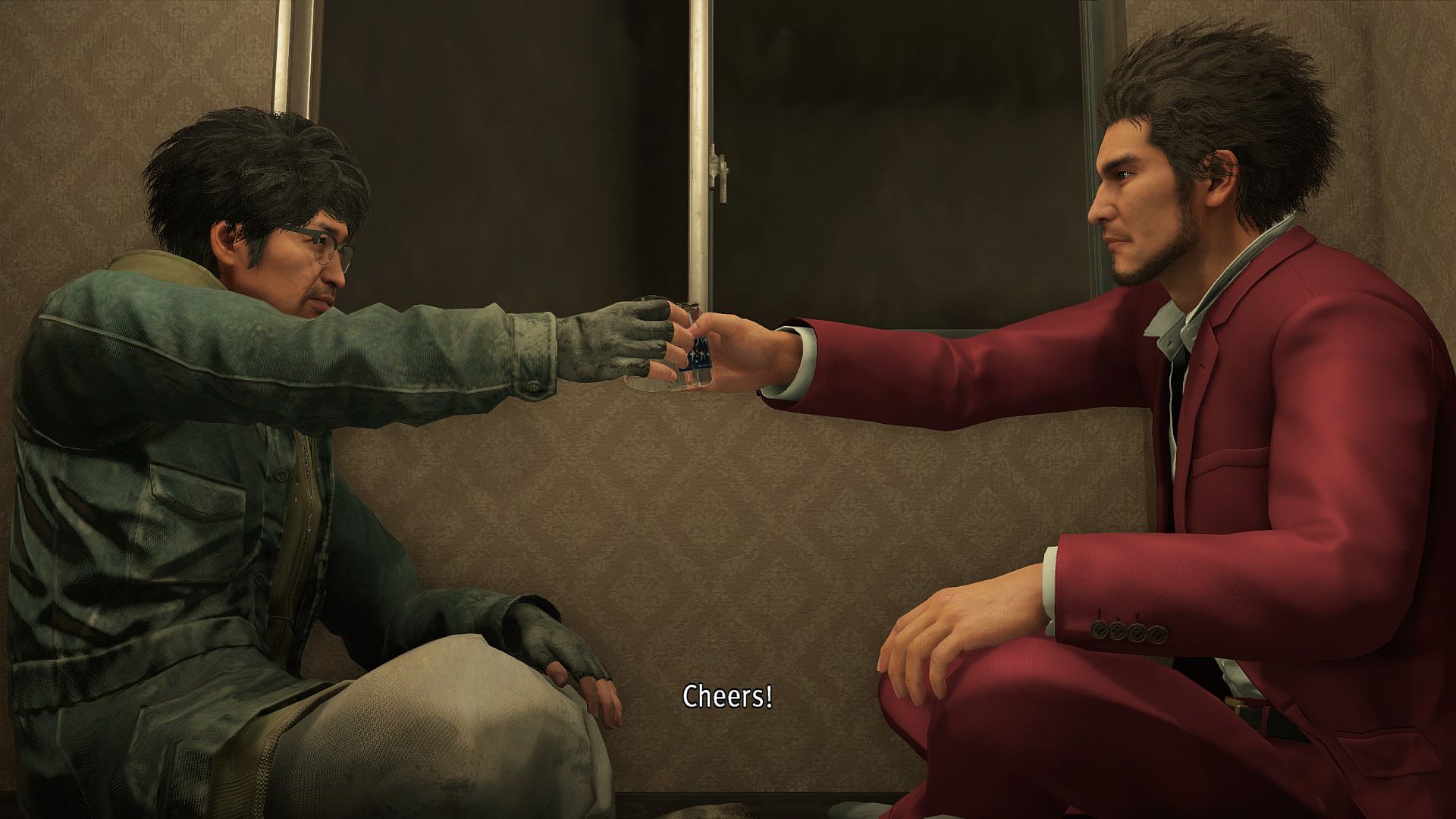
The more recent protagonist, Ichiban, wears his heart on his sleeve. His foes use that to take advantage of him or get under his skin in certain situations. Yet Ichiban’s kindness outshines his naivety, inspiring people to follow his endeavors since he wants to do genuine good for those around him. This also enables him to understand someone’s psyche better than Kiryu, as he works to understand people on a personal level. Ichiban sees the arrogance and hypocrisy that threatens to change the landscape of Yokohama and fights corrupt leaders to the end because they harm other people’s way of life.
Hopeful Journeys
In exploring what makes Kiryu and Ichiban great protagonists, I’d be remiss not to highlight their infectious charisma.
It’s hard not to smile when seeing Ichiban help a community fight off gentrification or Kiryu help a professional voice actor hit it big. In a way, they are guardian angels for their community; they are never judgemental and strive to help people achieve their goals. Even in the case of nefarious purposes, like the false prophet cult in Yakuza 0, Kiryu helps others see the errors of their ways by illuminating the negative consequences of having people’s free will manipulated.
Both have a special relationship with the concept of “protecting” those who can’t defend themselves, and they go to extreme lengths to do so (fighting an excavator, a tiger, professional fighters, etc.) since they have suffered great losses before.
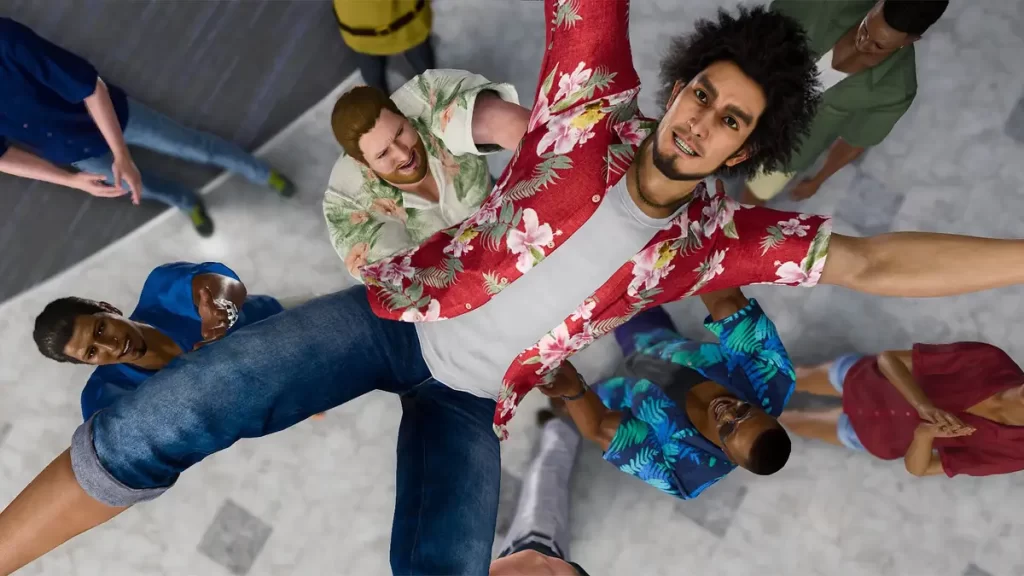
Yet, that feeling of letting go of the past is also central to their characterization. Both characters quickly gave up power even after finally tasting it. In Yakuza 3, Kiryu runs a non-profit orphanage. The newest game, Like a Dragon: Infinite Wealth opens with Ichiban working as a social worker. I imagine their lives would be different if they were still on the path of succession in the Yakuza. These two do their jobs of making sure the former Yakuza and people around them remain at equilibrium so that they can have a life worth living instead of deciding to turn back down the dark path.
I also admire how they can see through evil intentions through the likes of malevolent groups such as Bleach Japan and the Kuroha Family. Ichiban’s way of rallying everyone to his side and Kiyru’s calm and collected nature dissipate the fear of the enemy having the upper hand.
The Yakuza protagonists are tenacious. They desperately want to not let those in power force them into boxes that prevent them from accomplishing their dreams. Sometimes the only thing they can do is fight, and since necessary violence has been used as a catalyst of change for the series, it is notable that the two are actively trying to stray away from it no matter how many times they are dragged back into the fray.
Spoilers ahead for Yakuza: Like a Dragon, Yakuza Kiwami, and allusions to Like a Dragon: Infinite Wealth. A graphic indicates when the spoilers are over.

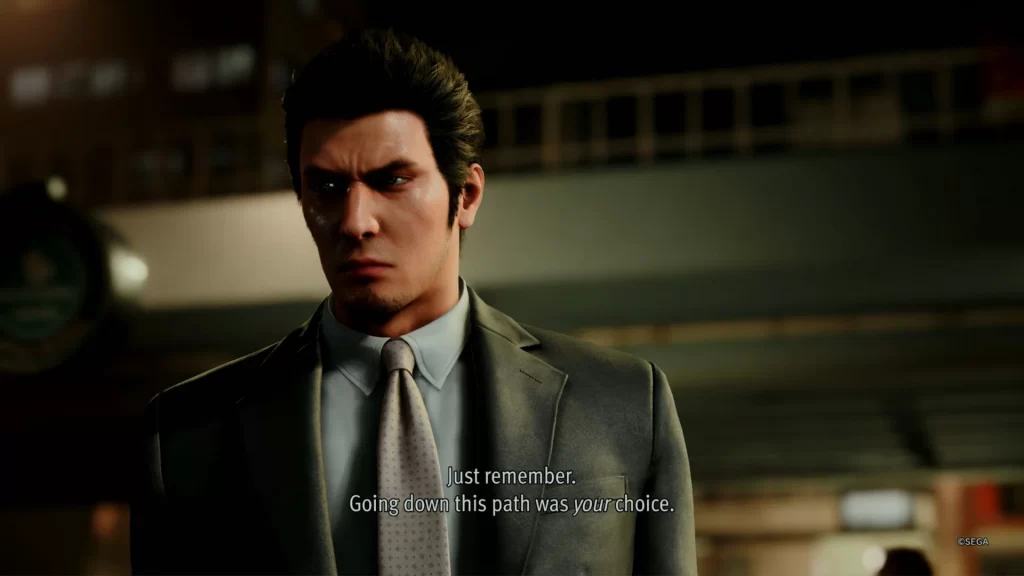
Tests of Will
In the Like a Dragon games, there is often a final confrontation that makes these battles of willpower clear.
The antagonist of Yakuza: Like a Dragon, Ryo Aoki, is a direct foil to Ichiban. Ryo Aoki is quiet, calm, and calculating. He prefers to spend time alone, obsessed with planning complex political schemes. Yet somehow in the finale, despite treading on Ryo Aoki’s path to power and praise, Ichiban manages to get through to Ryo Aoki by uplifting him. This interaction emphasized Ichiban’s empathy, and ability to not be close-minded.
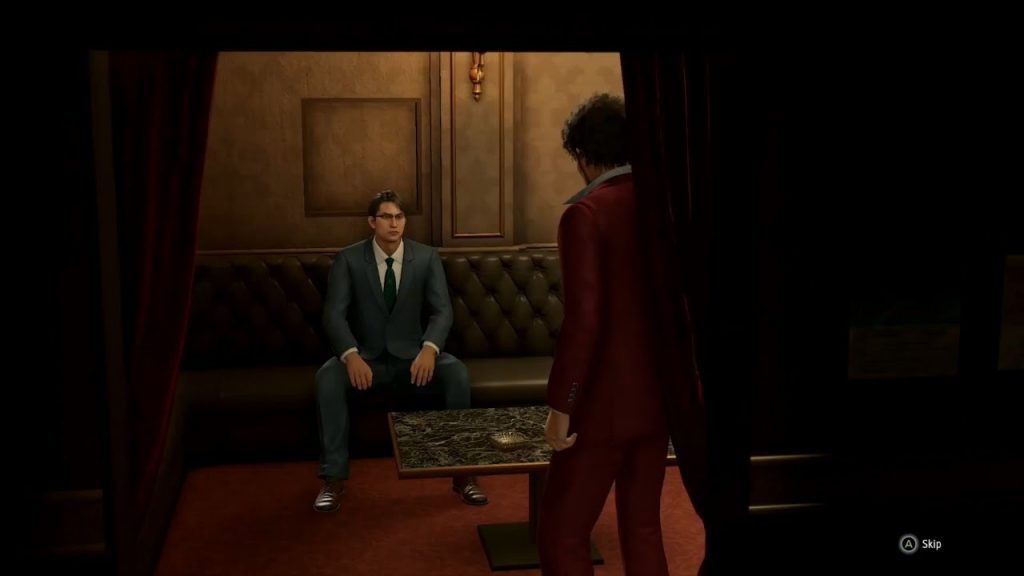
Most video game protagonists are portrayed as war-torn due to how much their antagonists have done to break them. It takes an unimaginable will and strength to carry on their task without feeling that their enemy should be utterly destroyed.
In Yakuza Kiwami (a remake of the first game in the series), Kiryu has a final confrontation with his adoptive brother Nishikiyama, who feels like he is always beneath Kiryu’s stature due to his treatment by the Dojima Family. Kiryu, however, did not see him in that light. His ability to discern those who had to climb up and claim power is directly evident in his interactions with Nishikiyama.
In comparison, Nishikiyama has a deep-seated inferiority complex, and it’s clear he was willing to do anything to break Kiryu. Kiryu is conflicted due to seeing the tireless efforts of what Nishikiyama has done for the family and him being the one to usurp everything from him in a fell swoop.

On the other hand, Nishikiyama demonstrates cruelty when he threatens Kiryu by aiming to take away Yumi, Kiryu’s love interest, and Haruka, Kiryu’s adoptive daughter. He understands Nishikiyama’s jealousy because Kiyru also had to work up to the top of the Tojo Clan and earn the goodwill of those who favored him.
In the end, Kiryu does not kill his adoptive brother and instead, Nishikiyama tries to save Haruka and Yumi from being shot at by another gang member. This act of selflessness brought back memories of how close they had been in Yakuza 0, and highlighted that a person who has stooped so low can still be redeemed. At the game’s end, Kiryu is left broken after the deaths of Yumi and Nishiyama, while still committing to guard Haruka.
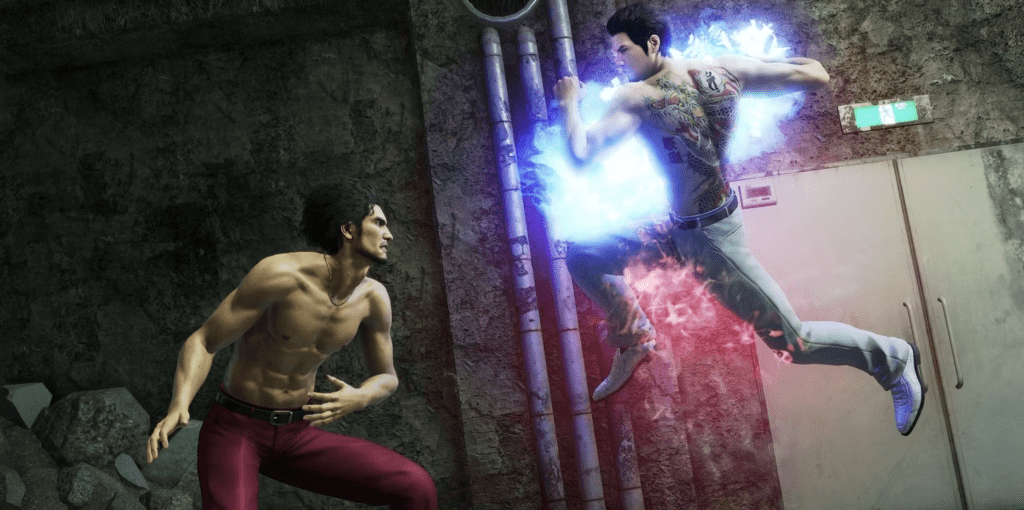
Twin Dragons
I’m impressed with the Like a Dragon series’ smooth transition to the role-playing genre, as it allows these characters to be more expressive than in previous, more straightforward beat-em-up entries. Playing through Infinite Wealth and having Kiryu breakdance on the floor to defeat his enemies makes this series feel more alive and allows me to see characters as more than just one-dimensional archetypes. (George Takei talks about this in an interview!)
Furthermore, there is a spotlight on the issue of loneliness for these characters. Kiryu, in particular, has fought many battles on his lonesome, and as the series ages, I start to realize that he can’t one-shot tigers by himself anymore. Ichiban, as the next-in-line Yakuza, is supposed to be the pinnacle of that notion. But I believe Ichiban has evolved into someone who can inspire Kiryu instead of simply being handed down the title and its expectations.
In Infinite Wealth, after spending time together, they share the same hallucination of seeing weird enemies that the rest of the party cannot. Despite all the setbacks they have endured, and how different they are, this design choice showcases the powerful influence they have over each other.

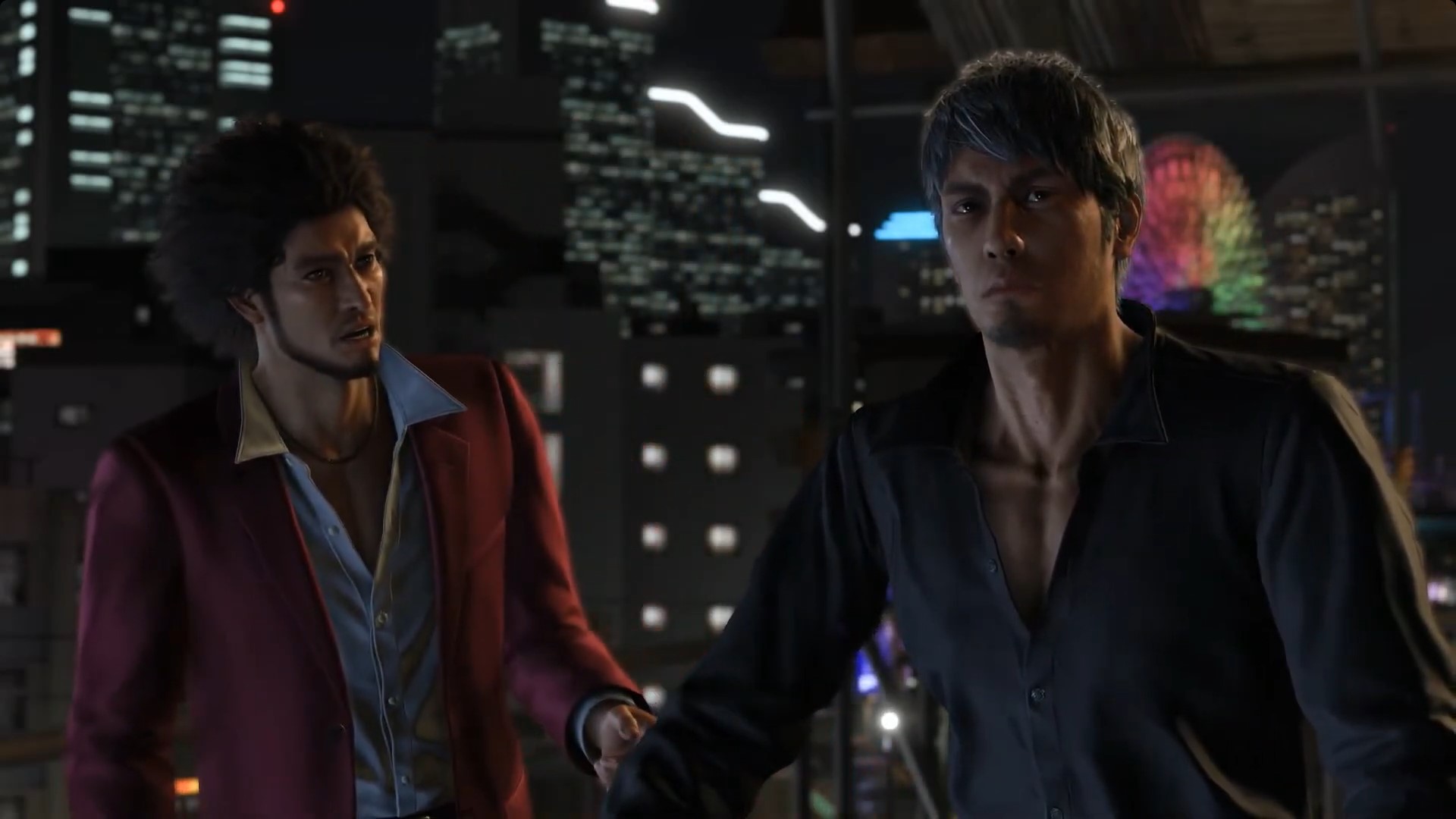
The Yakuza/Like a Dragon games have an extraordinary challenge of making a world that feels nuanced and real when it has such heavily pre-established expectations. Yet, it’s shocking when those goals are turned on their head to fulfill a new niche. This meta-design harks back to the two protagonist’s backstories of finding the relationships they want to have and understanding what they can (and can’t) afford to lose.
They can accept when they are wrong and learn to be a better person, while essentially becoming models of wisdom throughout their community. Their adaptability to their scenarios keeps them going and embodies their true character within the Yakuza spectrum. Ichiban and Kiryu share a belief that dreams cannot be bought or conquered. Ichiban is already worthy of claiming the Dragon title (as seen via his tattoo), and Kiryu is learning that it’s fine to not have everything dependent on himself.
People have to go against the status quo to achieve their life goals, even when the outcome is uncertain. The Yakuza protagonists demonstrate that, beyond any perception of “invincibility,” there’s a human who has successfully freed themself from fear.
Kris is a gaming and fitness enthusiast who loves turn-based and action role-playing games. He also likes talking about gameplay mechanics that add new layers to the genre and the need for diversity in video games. He hopes that gaming can be seen as more than interactive mediums and be looked at as a celebration in the entertainment industry. Whenever he is not playing games, he is crafting poems, writing fictional stories, or working out at the gym. New to journalism, he hopes to be a narrative writer for video games or create his own graphic novel series.


